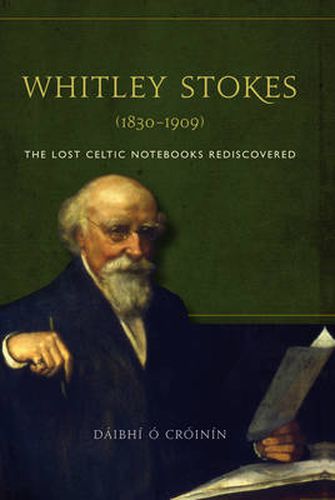Readings Newsletter
Become a Readings Member to make your shopping experience even easier.
Sign in or sign up for free!
You’re not far away from qualifying for FREE standard shipping within Australia
You’ve qualified for FREE standard shipping within Australia
The cart is loading…






Whitley Stokes was described as ‘the greatest of living Celtic philologists.’ An equity draughtsman and conveyancer by trade, during his spare time he studied philology with Rudolf Siegfried, from whom he acquired his mastery of the Celtic languages and of Sanskrit. In 1862, Stokes was sent to India where he began carving out a reputation for himself as a Celtic scholar. The discovery, by author Daibhi O Croinin, of all Stokes’s 150 working Celtic notebooks, unnoticed since 1919 in the University Library, Leipzig, has only now revealed the extent of Stokes’s astonishing industry in his later years, and makes available the previously lost manuscript notebooks. Readers will be able to follow the course of his 50-year career and the evolution of his scholarly works as pioneer text-hunter and publisher of previously unpublished materials in Old Irish, Old Welsh, Old Cornish, and Old Breton, which all marked him out as the foremost Celtic scholar of his time.
$9.00 standard shipping within Australia
FREE standard shipping within Australia for orders over $100.00
Express & International shipping calculated at checkout
Whitley Stokes was described as ‘the greatest of living Celtic philologists.’ An equity draughtsman and conveyancer by trade, during his spare time he studied philology with Rudolf Siegfried, from whom he acquired his mastery of the Celtic languages and of Sanskrit. In 1862, Stokes was sent to India where he began carving out a reputation for himself as a Celtic scholar. The discovery, by author Daibhi O Croinin, of all Stokes’s 150 working Celtic notebooks, unnoticed since 1919 in the University Library, Leipzig, has only now revealed the extent of Stokes’s astonishing industry in his later years, and makes available the previously lost manuscript notebooks. Readers will be able to follow the course of his 50-year career and the evolution of his scholarly works as pioneer text-hunter and publisher of previously unpublished materials in Old Irish, Old Welsh, Old Cornish, and Old Breton, which all marked him out as the foremost Celtic scholar of his time.